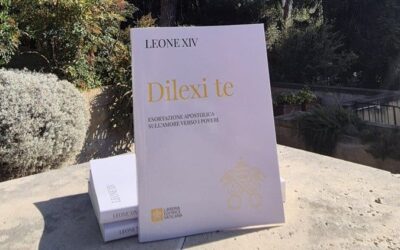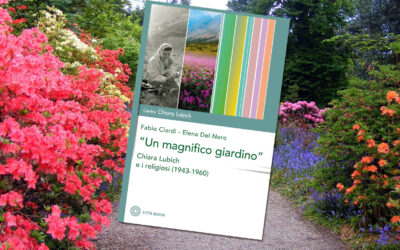An event dedicated to one of the “founding fathers” of the Italian Constitution, a writer, journalist, politician and co-founder of the Focolare Movement, Igino Giordani. The event, promoted by the Movement’s General Archives and the Igino Giordani Centre, was the first in a series aimed at getting “to the roots” of fraternity as a political element. At a time when values such as respect, coherence, loyalty are engulfed in a misleading narrative often resulting from an artificial communication system, the aim of these talks which were the inspiration of the Focolare Movement’s General Archives and the Igino Giordani Centre is to extract certain “pearls” from the heritage safeguarded by the two centres that characterized the life of political figures who were guided by the values of fraternity typical of the charism of unity. “If everyone was like Giordani, there would be no wars, no discrimination, no hatred. This great man must be a reference point for humanity. It’s up to us now to promote his ideas”. These words spoken by Gaia, a seventh grade student, give us an idea of how relevant Giordani’s message is and what an inspiration he is for the new generations. More than 300 people met together on 15 February 2020 in the Auditorium of the International Focolare Centre in Rocca di Papa, including politicians, mayors and local administrators. The event, which was viewed via livestreaming by people all over Italy and Europe, forms part of the year marking the 100th anniversary of Chiara Lubich’s birth. During the evening Giordani’s charm clearly emerged from words spoken by those fortunate enough to have met him such as Argia Valeria Albanese who recalled: “From those meetings, even personal ones held in the garden of the Mariapolis Centre in Rocca di Papa, I was greatly inspired to make a long term commitment to a political party and its institutions. There was another phase in my life where I felt a strong relationship with Igino Giordani not so much as a teacher or someone to follow but as an older brother to whom I could open my heart in those moments of failure… The misunderstandings and often the resentment, the denigration and not managing to achieve the objectives I’d set myself, however noble and disinterested, electoral defeat, losing friends”. Pietro Rossellini who served the community of Montecatini as Councillor affirmed how he was guided by “the radical mutation of this man as he got older, considered to be the strongest defender of the Christian faith par excellence, who allowed himself be transformed by Chiara Lubich by changing his controversial verve into Fire of Love. His being was not distorted, but made more sublime, elevated.” For Patrizia Mazzola, who worked passionately as a teacher in the Ballarò and Brancaccio neighbourhoods of Palermo, “some of Giordani’s writings have changed my idea of political and social commitment and given me courage in some of my battles in favour of the least of the city”. Chiara Zanzucchi and Lucia Zurlo from the General Archives and Alberto Lo Presti from the Igino Giordani Centre observed that the desire to organise this series of events lies in a growing awareness that the Archives are alive and kicking. These meetings dedicated to “witnesses in politics” enable us to appreciate how much the charism of unity has influenced political commitment through their moral coherence and political passion, their contribution to fraternity and peace.
Gianna Sibelli




0 Comments